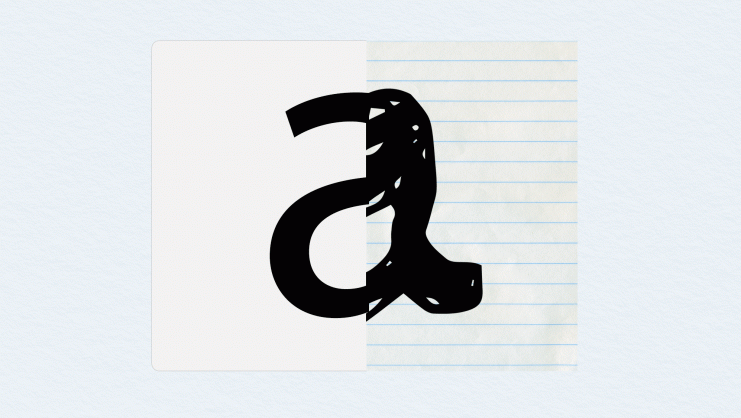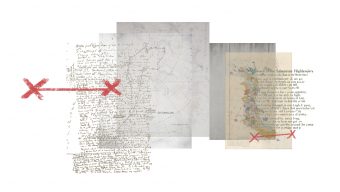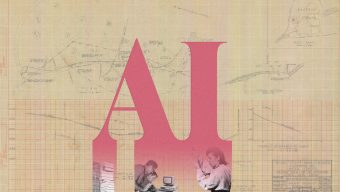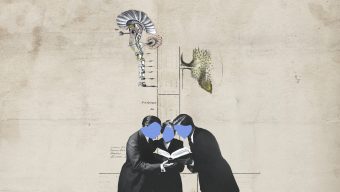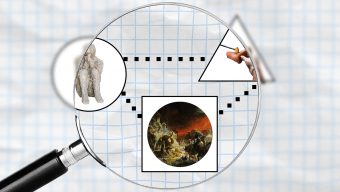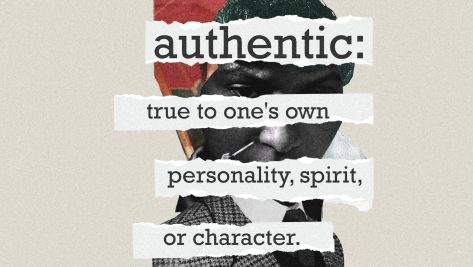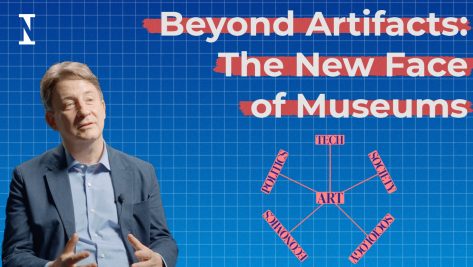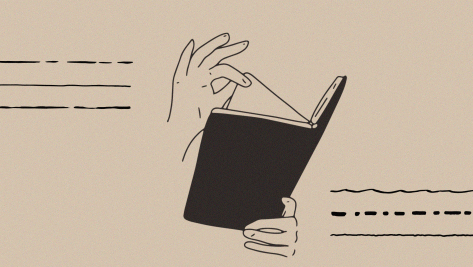In Conversation: Feminism and Literature
Do female authors fulfill a different role than their male counterparts? Celia de Anca sits down with award-winning author Reem Bassiouney to explore the relationship between feminism and literature.
Arab fiction recommendations from Reem Bassiouney and Celia de Anca:
-
- The Saint’s Lamp by Yehia Haggi
- The Harafish by Naguib Mafouz
- The Perfect Candidate by Haifaa al-Mansour
- Sex and Lies by Leila Slimani
Selected works from Reem Bassiouney:
-
-
- The Pistachio Seller (2007)
- Dr. Hanaa (2008)
- Sons of the People: The Mamluk Trilogy (2018)
- Al-Qata’i: Ibn Tulun’s City Without Walls (2020)
-
© IE Insights.
Transcription
Celia de Anca: Hello, Reem.
Reem Bassiouney: Hi Celia. How are you?
CdA: Very good, looking forward to this conversation.
RB: Me too, very much so.
CdA: And I think we can speak about so many different topics, we are so similar in many ways. I mean, we can even show.
RB: Yes, we are very similar and yeah, I can feel that we will have so much in common to speak about.
CdA: And perhaps also some differences. Sure. My first question that I would like to explore with you is: do you feel yourself a feminist?
RB: Such a difficult question. I think I am. But then again, as with identity, everyone has a different conception of what feminism means. So I think feminism for me may mean something different from what it is for you, because my own culture and my own background and even the challenges that I have may be a little bit different.
So feminism, I definitely believe in feminism and I also believe in equality for everyone. But I’m sure that we will have differences in the way that we look at it.
CdA: I mean, I think I changed quite a lot about my perception of feminism. For me, feminism is to understand the inequalities between woman and man, then definitely I’m a feminist. But it is true, lately there is such a different way of understanding this inequality and the role of woman and what woman is in the first place, that I think I’m struggling with that.
I believe that theoretically every position has a role and I can even understand all of them, even the more different ones. But in terms of action or activism, then I will have great difficulties. But I am an academic, so I don’t have that much trouble for that. So I can accept all the different theories, although I’m not sure if I was a politician or an activist, how will I do? I don’t know about you.
RB: That’s a very good question as well. When you’re talking, I’m thinking about my own perception. And I think that, you know, there shouldn’t be a competition between men and women. They should be living together in general in harmony, because when humans live together in harmony, life is much easier for everyone. And once they start to be in conflict with each other, things do not necessarily work.
However, if I were a politician, I think I would make sure that women have the same chances at work that men do, but also make their life a bit easier in terms of family. Because a woman is challenged with struggling to keep her family, bring up her kids, and also work. And it’s only fair that work should give her some more release time and more compensation, making sure that this does not affect her career.
So I would actually work at making sure that there’s equity between both in terms of workwise, in terms of salary, which is a very big issue all over the world actually. Whether women are, in terms of salary, they are paid less than men. In terms of leadership positions, I would very much want to see more women in leadership positions.
But in terms of the human aspect, it’s a very good idea not to look at feminism as though it is an aggression towards men or there’s competition between men and women. I think it’s much more about living together with equity, as you mentioned, and with equal power and cooperating together to make life easier for everyone.
CdA: And I think it’s richer because reality’s a puzzle. So I think every single angle, how odd it is at first, contributes to understand reality a little better. For instance, with the feminism of difference, I like all these ideas of the femininity and the values all the feminine can bring into society. And even with the new modes of feminism, these kind of post-structuralist or post-modern ideas of the nonbinary and the social construct of society.
To me, it’s difficult because this is a whole different generation, but I think it adds a little bit into the puzzle of reality. However, I think sometimes it’s difficult to understand these new generations. So I don’t know, how do you see the youth in Egypt? How is the woman movement in Egypt?
RB: I’m not very familiar with the woman movement in Egypt specifically, but I’m just looking at myself and my own values. And I feel like if we want to have equality, which is the most important thing we want to have, we would need the help of both men and women, we need the help of mothers who are bringing up their kids.
I’m just thinking how do you bring up a man to respect a woman, to respect her career and respect her achievements, realize that she also needs to realize herself and achieve success in her own way, and not just as an asset to a man? And I think these are the kind of challenges that I feel in Egypt specifically are very important. And they should be taught at a young age for both men and women and it should be that parents are teaching their kids, family members are teaching their kids, schools and universities are teaching students that this is a very essential part of life. And when women and men are both producing, then we will end up with a society that is way better economically, politically, and culturally.
CdA: I agree, my view on this, for me it was very difficult to understand, probably not so much now, but in the late 90s, when I saw many young women putting back on the veil as a sign of feminism. Sure. How can you understand that? Because here, at least for some people, it was very difficult to understand how this can be considered as feminism.
RB: So basically, in my opinion, the idea is that women should be free. Their body is their body. They want to cover it, they should be free. They don’t want to cover it all, that’s also up to them. So the idea is that throughout history, women all over the world unfortunately, were always used as a symbol. They are always symbolized, they are always sort of idealized.
And lots of restrictions are put on them because of that. So because you’re a symbol of the country, you should not put the veil or because you’re the symbol of the country, you should put the veil. And in both cases, that’s not right, because women have the freedom to do whatever they want. So that’s why we find in communities in which the veil was sort of banned, people intentionally, or women intentionally challenged that and put the veil.
So the veil should be an issue of personal freedom. If a woman wants to put the veil should be able to. If she doesn’t, no one should pressurize her to. And to me, this was a movement of claiming that a woman’s body is her body. It’s not society’s body. It’s not an entity’s body, it’s not a nation’s body, which is something that looking at from a sociolinguistic perspective, was for a long time the case.
CdA: That’s very interesting, because I often think that women, they represent a community while men are authorized to be individuals.
RB: Yes. Yes.
CdA: And in that sense, I think that a woman’s struggle is not to be this way or this other way. It’s to be yourself.
RB: Exactly.
CdA: And that to me, has a lot to do with, for instance, literature. Whenever we see a woman writing, we see, okay, she represents womanhood in her writing, and sometimes she does, but sometimes she just represents herself.
RB: I totally agree, and there is a lot of pressure on women to adhere to a specific form of literature in which she writes an autobiography, in which she writes about women problems, in which she uses symbolism. But again, this has to do with this idea in the culture that women are always used as a symbol, and it’s a kind of liberation for a woman writer to be able to move away from all these expectations and write whatever they want to write.
As you said, just have the freedom the same way that you have freedom over your body or you ownership over your body and over your thoughts. You should have a freedom over what you really want to write.
CdA: Yesterday, when we were having this conversation, you were talking about, for you, the ideal writer will be not knowing what is their gender. And I was just thinking that I’m not sure I read so much women’s literature. I read it whenever I do for my courses, but I’m not sure how I choose, how I pick up my writers.
RB: Interesting. Would you be able to tell from the reading the gender of the author or not?
CdA: That’s very challenging because, I do believe, for instance, there is a couple of writers that could only be women. Clarice Lispector a Brazilian-Ukrainian from the sixties. I’m sure only a woman can write like that. I mean, it’s very deep, very poetic or very, I don’t know, to me it goes to the essence of the feminine. And to me, that type of writing could only be a woman, I think. But, you know, for the rest, I don’t know. What about you? Would you be able to tell or not?
RB: I think in most cases, yes, I am able to tell. And then there are some writers that are perfect. Whether, males or females, but also there are writers that are, unfortunately women writers, that could be very narrow in their perspective. They only speak about themselves. Which is fine, we respect that, but if it’s all the novels are only about that, then it’s a little bit, it could be tiring.
For men, I think sometimes the representation of woman is, again, very symbolic, very ideal, sketchy. There is no deep feelings. They don’t go in depth about women’s achievements and women’s ambitions and women’s feelings. They would just sketch a beautiful woman in a novel. And I think that’s clear to me. Like sometimes I’m reading a novel and that’s, you know, okay, this is written by a man or I read a novel and this is written by a woman. But in other cases, there are great writers that could express feelings about both genders without necessarily falling into that trap.
CdA: But it’s true that I recognize that some of the novels that I’ve read lately, they make me think that those people don’t understand. I mean there may be symbology of woman, but it’s even a little bit offensive.
RB: It’s true.
CdA: Before I didn’t pay attention to those things. And the more I think about it, the more I consider.
RB: And I feel like we grow up to learn to read better, isn’t it? I mean, the more we read, the more we are aware of what we read. Like sometimes the great novels I read at different stages of my life. So I started like 20 and I understood in a totally different way, and at 30 in a totally different way, and then 40 a totally different way. So yeah, we sort of read in a different way.
CdA: I think there were specific other women writers that I think only a woman could have that vision. There is one lady, Mary Montague, I don’t know if you ever heard of her, she was in the 18th Century. Mary was the first one getting into the Ottoman Empire and the first one in a hammam.
RB: Yes, I heard about that one.
CdA: Yeah. Incredible. Because she has a vision.
RB: That’s worth writing about because that’s a totally different experience.
CdA: And the way she writes changes your perspective totally, because she is a woman from the Victorian times, British, goes there and then she sees all these women naked, swimming and having a great time and they ask her to join and then she shows her dresses, you know, these Victorian dresses. And then all these Ottoman women thinking “oh, poor European women, they’re housewives”.
“They put them into these cages so they cannot move freely.” And suddenly that totally changes your perspective. A man could never have written in such a way.
RB: Yeah. Yeah, I totally agree with you. Yeah, definitely. I mean, there are substantial landmarks and literature written by women and had to be written by women. However, again, it’s usually these are landmarks we want to make sure that women could write about all themes in the same way that men can. That’s also a kind of liberation in a way.
CdA: And do you think that is good for education to, let’s say, how does literature help education? When I studied, only in the literature class you had to read. And then the rest was your own way.
RB: I think literature is essential in all departments and not because I’m biased, but I personally think in science departments and in business departments and literature, the humanities, literature is really essential for understanding humans, for being able to communicate. If you’re working in business, you need to communicate. Literature will help you do that. If you are an engineer, you still need to communicate.
So literature would help you do that. If you are a humanities major, then you also need literature to be able to understand the depths of human weakness, the depths of human conflict, the depths of human achievement. I think literature is essential in any class, actually, and I think it’s important for universities and schools to incorporate literature in all their classes, to be honest.
And there will always be a work of literature that is interesting for engineers or interesting for architecture, interesting for business.
CdA: I’m thinking now of medicine, for instance.
RB: Sure, I mean medicine, that’s another topic in which literature would be essential. But I think it’s a pity that sometimes, especially in a lot of countries now, humanities are not necessarily looked upon in a positive way as much as science. And people are all moving towards studying science, which is fine. But if you end up graduating from university and have never read a novel, there is something really missing in your life.
CdA: And also to integrate, perhaps the mistake was to separate humanities from other arts. Yes. Probably it’s more a compliment. What you were saying, I think literature really touches your heart. Like a science book, it’s your mind that is at work, but in literature it’s definitely your heart. So you give for an example something that it would be very difficult to explain in words. A story gets to you, it’s more probably the emotional part of the science.
RB: And if we are now looking for more tolerance all over the world, we’re seeing so much fanaticism everywhere, unfortunately, I personally think that literature could solve that. I think two things could solve it: business and literature. Because in business you don’t look at anything else except your profit. So it doesn’t matter what the color, religion or ethnicity, but with literature it’s the same.
Because once you’re touched by a human experience, you forget where this person comes from, their culture, and that will teach us all tolerance, much more tolerance.
CdA: I will add music to that.
RB: Music, of course. All kinds of art, I would definitely think all art would be great.
CdA: Literature, perhaps you need translation. Sure. I don’t know how because sometimes it helps to overcome prejudice, but perhaps not always because sometimes.
RB: No, you’re right. You’re right because it depends what is translated. Well, sometimes what is translated is unfortunately… so there is an issue for literature, especially in the Arab world: who selects the translation for literature, what is being translated? Is it mainstream work or is it just periphery work? And does it express the real problems of society, or does it just express problems of the few in society? And I think that’s a big issue in translating, and literature, and it needs to be reexamined.
CdA: That’s interesting because it’s true normally I know from friends who are translators that you get to know the latest novel and so again, we are in the branding. Whatever is branded then is translated and distributed. So in a way literature can help overcoming prejudice, but if we are not careful, it could also be used by some politicians to consolidate some prejudice.
RB: Unfortunately yeah.
CdA: Do you think that can happen?
RB: Yeah. And I think that what survives at the end of literature are the great works that appeal to humanity at large rather than just a specific culture, or a specific trauma of one specific person. But if this person’s trauma or tragedy, is something that we all feel for, then it appears like Shakespeare, for example.
We all think about Hamlet, this idea of someone who doesn’t know how to take a decision and we meet someone like this every single day of our life, someone who is sort of wavering about how to take a decision and just by wavering for a moment has a tragedy in their life. And that’s exactly because he’s appealing to a human being. And I know from my own experience, once I started reading British literature, for example, it’s like I knew so much more. It opened horizons for me.
CdA: Which one? Because I was thinking when you were talking about literature moving you very deeply. For instance, I think every time I read Jane Eyre, which has absolutely nothing to do with me and my background. Exactly. I cry every single time I read it. And I have read it I don’t know, ten times. What would be your favorite book?
RB: Wuthering Heights from Emily Bronte. This is a novel when I read or tell, I have to cry. Again it’s written by a woman, a woman in the 19th century or so, and yet it just appeals to human beings. The feeling of love, loss of love, the passion for someone that you can never be with, and also prejudices in society. And this idea of revenge or the idea of human weakness, she just expresses it in such a wonderful way that you can’t help but to really sympathize with all the characters, but also feel bad for all of them.
CdA: I totally agree. And also, I mean, for my courses, I was reading again and again Virginia Woolf. Every time I cry. And I said, how can a woman, a Victorian woman, that has absolutely nothing to do with me, with different ideas and I probably would not sympathize with her if we would talk politics, for instance, but she makes me cry every single time. How can she touch my heart in such a way?
RB: I think this is like a very important moment in humanity when we have feelings for people who may not share with us anything except humanity. And that’s very important.
CdA: So do you think you have such an impact with your books?
RB: I don’t know.
CdA: I can tell you that you do.
RB: Thank you so much, it’s difficult for me, I hope so, this is my ambition in life, but you can never know really.
CdA: Do you think about anyone in particular when you write?
RB: It depends what I’m writing about. If I’m writing a specific character that really affected me and then writing about the specific character. Then of course, the character is in my mind.
CdA: Professor Hanaa really touched me.
RB: Professor Hanaa is taken from a real person. So the little details about the life of this specific person, it’s taken from this. Perhaps that’s also why it appeals to you, because it has honesty.
CdA: It is honest, you can see the character. It’s not fiction.
RB: No, it’s a real person.
CdA: And also because your latest books are much more about history, about your roots, which I really think is a way literature has like two dimensions, perhaps one internal one exploring yourself, and the other one is communicating something to the public.
RB: And, you know, you told me something about why I started writing historical literature, because it seems like at one stage in our lives we’re really trying to look for who we are in terms of historicity or who are we historically? Who were our ancestors? And that is the moment when I suddenly started to write about the Mamluks in Egypt or medieval Egypt and try to understand how did we become what we are now, and how would my grandmother, great, great, great grandmother, think about issues? And that was a kind of healing process for me to write about history for sure.
CdA: For me, that was definitely when I was turning 50. I decided to write about my ancestors and also about Spain 100 years ago to try to understand what I was and what I was in relation to my ancestors.
RB: And I like what you said about this is the reconciliation with the self and with others, in a way.
CdA: Yeah, it was a healing process. I say, okay, I am because they were and whoever in the future, they will be because we are.
RB: I totally agree. Definitely I agree with that.
CdA: So thank you very much.
RB: Thank you.



